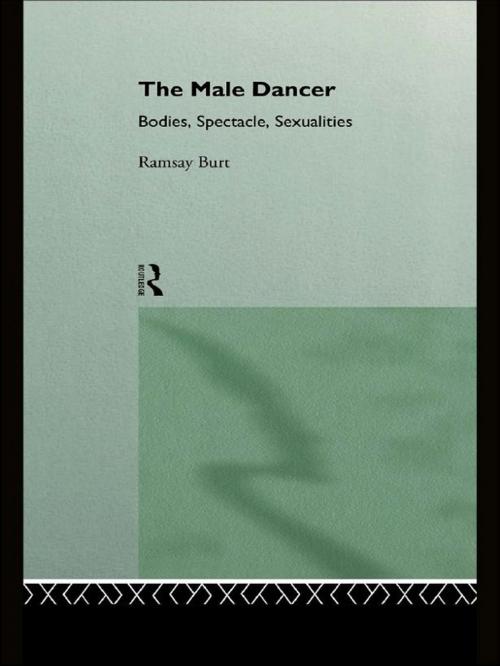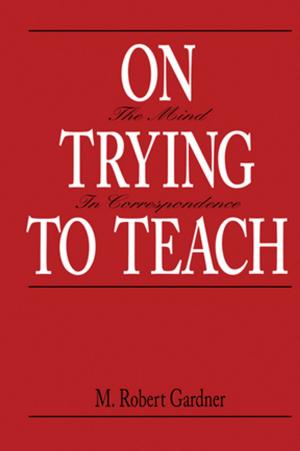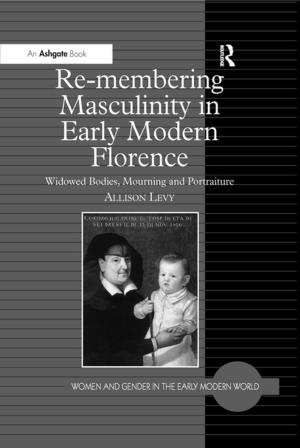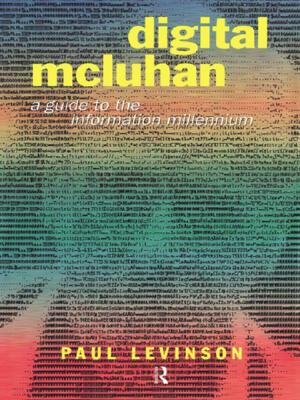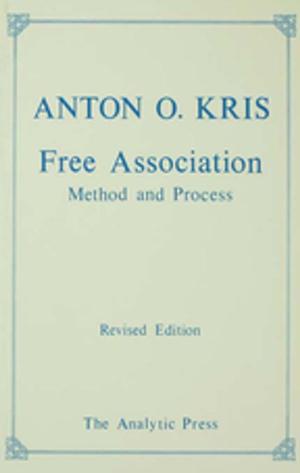| Author: | Ramsay Burt | ISBN: | 9781134962259 |
| Publisher: | Taylor and Francis | Publication: | September 2, 2003 |
| Imprint: | Routledge | Language: | English |
| Author: | Ramsay Burt |
| ISBN: | 9781134962259 |
| Publisher: | Taylor and Francis |
| Publication: | September 2, 2003 |
| Imprint: | Routledge |
| Language: | English |
In this challenging and lively book, Ramsay Burt examines the representation of masculinity in twentieth century dance. Taking issue with formalist and modernist accounts of dance, which dismiss gender and sexuality as irrelevant, he argues that prejudices against male dancers are rooted in our ideas about the male body and male behaviour.
Building upon ideas about the gendered gaze developed by film and feminist theorists, Ramsay Burt provides a provocative theory of spectorship in dance. He uses this to examine the work of choreographers like Nijinsky, Graham, Bausch, while relating their dances to the social, political and artistic contexts in which they were produced. Within these re-readings, he identifies a distinction between institutionalised modernist dance which evokes an essentialist, heroic, `hypermasculinity'; one which is valorised with reference to nature, heterosexuality and religion, and radical, avant garde choreography which challenges and disrupts dominant ways of representing masculinity.
The Male Dancer will be essential reading for anyone interested in dance and the cultural construction of gender.
In this challenging and lively book, Ramsay Burt examines the representation of masculinity in twentieth century dance. Taking issue with formalist and modernist accounts of dance, which dismiss gender and sexuality as irrelevant, he argues that prejudices against male dancers are rooted in our ideas about the male body and male behaviour.
Building upon ideas about the gendered gaze developed by film and feminist theorists, Ramsay Burt provides a provocative theory of spectorship in dance. He uses this to examine the work of choreographers like Nijinsky, Graham, Bausch, while relating their dances to the social, political and artistic contexts in which they were produced. Within these re-readings, he identifies a distinction between institutionalised modernist dance which evokes an essentialist, heroic, `hypermasculinity'; one which is valorised with reference to nature, heterosexuality and religion, and radical, avant garde choreography which challenges and disrupts dominant ways of representing masculinity.
The Male Dancer will be essential reading for anyone interested in dance and the cultural construction of gender.
